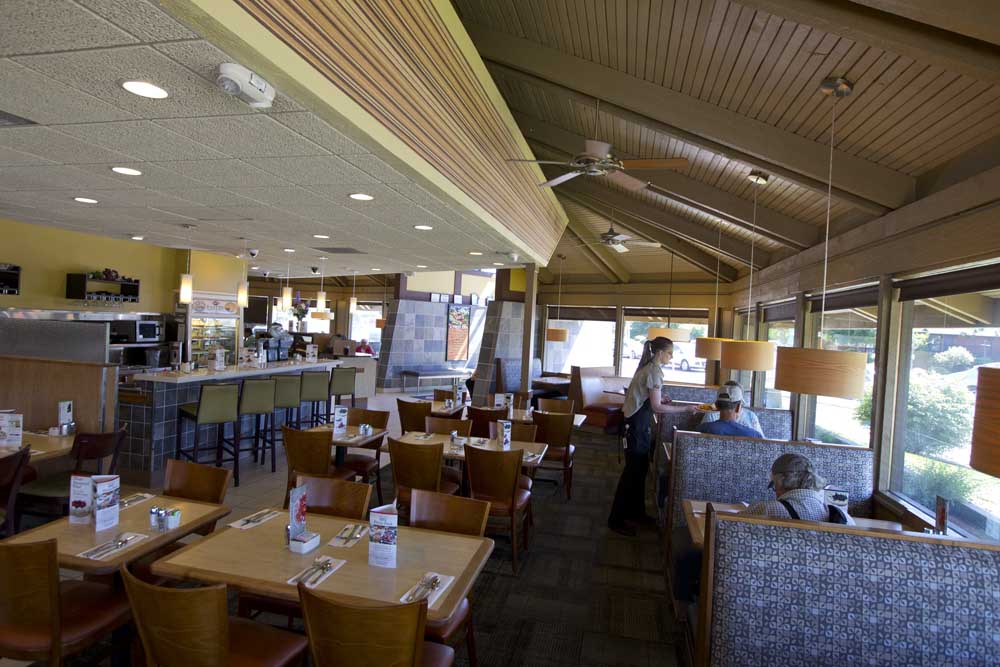Strike at Portland Nabisco bakery enters second week
Published 2:09 pm Wednesday, August 18, 2021

- Stock image
Approximately 200 union workers at the Nabisco bakery in Portland walked off the job last week, starting a strike that’s now entering its second week.
Cameron Taylor, a business agent at Bakery, Confectionery, Tobacco Workers, and Grain Millers Local 364, said workers began the strike during contract negotiations after Mondelez International, the parent company of Nabisco, floated a contract proposal that includes a more costly health care plan for new hires and makes changes to the traditional workweek schedule that workers say will limit overtime pay.
“This company made record profits throughout the pandemic and then they come to the table and they want concessions,” Taylor said. “It’s absolutely a slap in the face.”
Mondelez said in a statement it was disappointed with the strike and felt they had proposed a competitive offer that would set up the “U.S. bakeries for future investment and long-term success.”
“Our goal has been — and continues to be — to bargain in good faith with the BCTGM leadership across our U.S. bakeries and sales distribution facilities to reach new contracts that continue to provide our employees with good wages and competitive benefits,” Mondelez said in a statement.
Union workers at Nabisco facilities in Aurora, Colorado and Richmond, Virginia, went on strike days after the Portland walkout. The contract the company is offering would apply to workers at all three facilities. The previous contract expired earlier this year.
Members of four other unions who have workers at the Nabisco facilities — where Oreos, Chips Ahoy and other cookies and crackers are baked and wrapped — have remained home in solidarity with the bakers union, Taylor said.
Taylor said the strike comes after years of Mondelez asking workers to take concessions.
In 2018, the company eliminated its pension plan and shifted to a 401(k) plan. The union also agreed in negotiations last year to allow the company to bring in temporary non-union workers.
The company’s new proposal would require bakers on high-demand lines to work a compressed work schedule of three to four 12-hour shifts a week without overtime pay, would eliminate automatic premium pay for weekend shifts, and would include a healthcare policy for new hires with a deductible and higher premiums. The current health care policy doesn’t have a deductible.
Jesus Martinez, president of Local 364, said the company required employees to work six to seven days a week last year during the pandemic to keep up with production demands. He said it was the most he had worked during his decade with the company.
“They didn’t appreciate it and now they are just throwing this in our face,” Martinez said. “We worked through the pandemic, the most dangerous time and they’re saying, ‘Now, we’re going to take away stuff from you guys.’ We’re not asking for any extra. We just want to keep what we have.”
Laurie Guzzinati, a spokesperson for Mondelez, said the compressed work schedule would impact only a small number of employees and the company believes it would offer a better work-life balance.
In addition, Guzzinati said the revised overtime rules would ensure that employees are only receiving overtime pay on the weekends when they’ve worked their full 40-hour shift during the week, ensuring that employees work their designated shifts.
She said the company’s proposal also includes wage increases and an increase to the company’s 401(k) match. She said the company would no longer bring in non-union temporary workers under the proposal.
The company said it doesn’t expect the strike to disrupt distribution of its cookies and crackers.
The strike comes on the heels of Nabisco shutting down factories in Fair Lawn, New Jersey, and Atlanta earlier this summer. Those facilities, which employed roughly 1,000 workers combined, had operated for decades.
Bakery, Confectionery, Tobacco Workers, and Grain Millers International President Anthony Shelton accused Nabisco in a statement last week of closing the bakeries with union jobs and sending them to Mexico.
Guzzinati, the Modelez spokesperson, disputed the characterization.
“Our commitment to the U.S. and to our thousands of employees here is very, very strong,” Guzzinati said.
Mondelez’ revenue increased by 2.8% to $26.6 billion in 2020 as compared to a year earlier. The company employed about 79,000 last year, about 12,000 of them in the United States.






